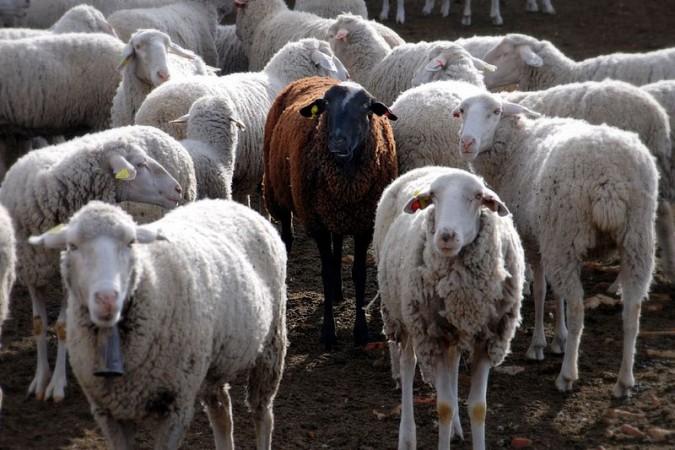
In a breakthrough, scientists for the first time, have cracked the genetic code of sheep to find out how they split to become separate species around four million years ago.
Researchers from the University of Edinburgh's Roslin Institute that receives strategic funding from the Biotechnology and Biological Sciences Research Council, were involved in the global team that has decoded the genome sequence for the first time, the complete genetic make-up of domestic sheep.
"Sheep were one of the first animals to be domesticated for farming and are still an important part of the global agricultural economy. Understanding more about their genetic make-up will help us to breed healthier and more productive flocks," said Alan Archibald, Head of Genetics and Genomics at The Roslin Institute and one of the researchers, in a news release.
To find out some details of the sheep, the researchers decoded the genome sequence of sheep for the first time. They compared the sheep's gene with that of other animals that include humans, goats, cattle and pigs. They also identified different genes that are linked with wool production and studied the genes that support the evolution of the rumen. The rumen is a chamber of the stomach that is involved in breaking down plant matter to be easily digested.
This joint study, involving 26 research institutions from eight different countries, was led by researchers from the BGI and the Kunming Institute of Zoology, China; Commonwealth Scientific and Industrial Research Organisation, Australia; The Roslin Institute and Utah State University and Baylor College of Medicine in the US.
The findings could help in the development of DNA testing and to accelerate the selective breeding programs, thereby helping farmers to improve their live stock, said the researchers.
They identified the particular gene linked to wooly fleece that separate sheep from goats and also finds the features of their digestive system that makes them so well-suited to a low quality grass and other plant diet.
The new study could also provide new insights to diseases that infect sheep. It gives a better understanding and awareness about the diseases that commonly affect sheep, which in turn could help farmers in maintaining a healthier domesticated sheep stock.








![BJP fields Tashi Gyalson for Ladakh; drops sitting MP [details]](https://data1.ibtimes.co.in/en/full/797185/bjp-fields-tashi-gyalson-ladakh-drops-sitting-mp-details.jpg?w=220&h=138)








